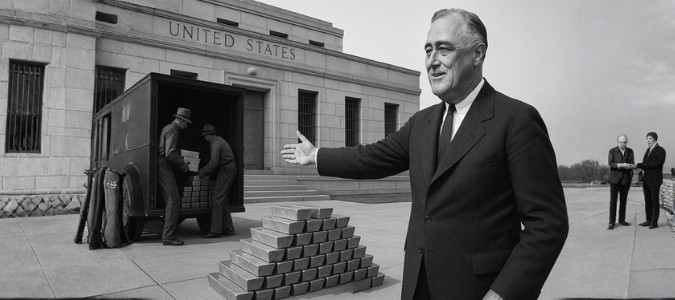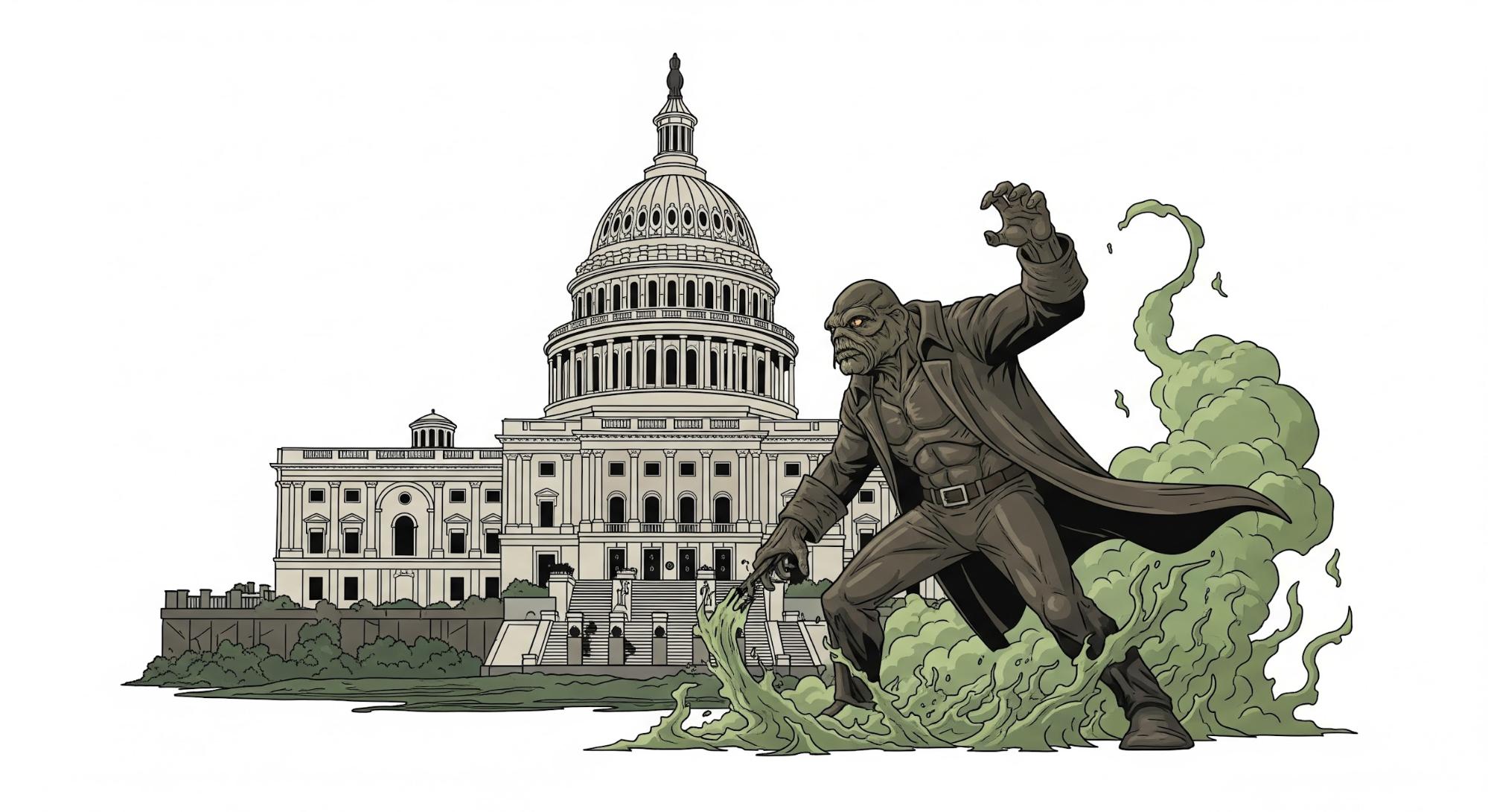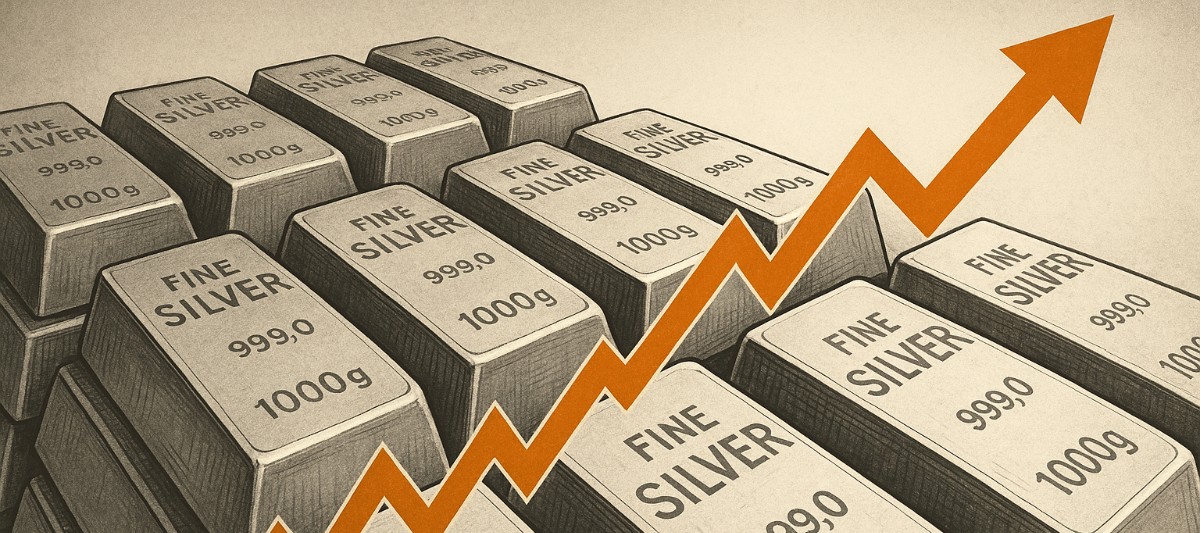
Posted April 15, 2025
By Sean Ring
Your $150 Trillion “Birthright” Hidden in Plain Sight
In a country where most people are fed a steady diet of “we’re broke,” “we’re overleveraged,” and “China owns us,” the idea that the United States is sitting atop a $150 trillion pile of untapped wealth sounds borderline insane.
Unless, of course, you’re Jim Rickards.
Rickards, former advisor to the Reagan administration, architect of the Petrodollar Accord, and long-time friend and colleague at Paradigm Press, claims a “national endowment” is literally buried beneath our feet.
It’s an inheritance that’s been off-limits to the public for 163 years. And now, President Trump might crack that treasure chest wide open thanks to a Supreme Court ruling last year.
A “Secret Trust” Created in 1872
The story begins in the dusty legislative pages of Title 30 of the U.S. Code. In 1872, the 42nd Congress enacted a provision to incentivize western expansion. It allowed citizens to claim mineral-rich public land for as little as $2 to $5 an acre—kickstarting booms in places like San Francisco, Denver, and Birmingham. However, according to Jim, the government held on to the richest deposits while much land was given away.
These lands—some 640 million acres, mostly out west—are now believed to contain a king’s ransom in minerals: copper, lithium, silver, uranium, rare earths. These are the building blocks of everything from electric vehicles to semiconductors, AI weapons systems to space tech.
The kicker? These assets have been largely untouchable for decades.
The Red Tape That Strangled Progress
At the heart of this standstill was a little-known legal precedent called the Chevron Doctrine. For nearly 40 years, it gave regulatory agencies—think EPA, Department of the Interior, Bureau of Land Management—the final word on interpreting environmental law. If a statute was ambiguous, the agency’s interpretation stood. In practice, any mining or drilling project could be arbitrarily blocked under the guise of “protecting a bird, a bush, or a bug,” as Rickards puts it.
However, in 2024, the Supreme Court torched the Chevron Doctrine, removing the regulatory straitjacket.
According to Rickards, that ruling began a seismic shift: unlocking the $150 trillion “American Birthright.”
Enter Trump, the Sovereign Wealth Fund, and the New Land Rush
Rickards claims that through executive action, Trump has launched America’s first-ever Sovereign Wealth Fund—modeled after Norway, Saudi Arabia, and other resource-rich nations. The idea? Monetize the “asset side” of America’s balance sheet. We’ve heard new U.S. Treasury Secretary Scott Bessent repeat the phrase many times since.
Instead of borrowing or printing money, the government would unleash previously untapped mineral wealth to generate real, tangible capital. Sitting dormant for decades, federal lands would now be open to development—fast-tracked, deregulated, and incentivized.
In fact, Rickards points to a post from Trump on Truth Social: “Any person or company investing ONE BILLION DOLLARS, OR MORE… will receive fully expedited approvals and permits, including… all Environmental approvals.”
Translation: the miners and drillers are being handed a red carpet. And for those with foresight—and a brokerage account—Rickards argues this is a once-in-a-century chance to ride the coattails of a generational boom.
From Regulation to Speculation
To be clear, this isn’t some public dividend scheme. You’re not getting a check in the mail. But Rickards believes ordinary investors can ride the wave through select mineral rights plays.
He compares this to past resource booms:
- First Quantum Minerals: up 2,583% after Zambia approved its Kansanshi mine.
- Northern Dynasty: up nearly 3,000% on its Pebble Project stake.
- Paladin Energy: up 61,000% after uranium approval in Namibia.
While he admits those are “best-case” scenarios, he believes similar dynamics could play out stateside—especially if the federal government gets out of the way.
According to Rickards, five public companies currently control stakes in U.S. deposits that could become exponentially more valuable almost overnight. He compiled them in a report, “The American Birthright,” which he bundles with his newsletter, Strategic Intelligence.
The Geopolitical and Inflationary Angles
Beyond the potential upside for investors, Rickards frames this shift as a strategic counterweight to China.
Currently, the U.S. imports 100% of 20 critical minerals—everything from lithium to rare earths—many from China. With the Middle Kingdom now cutting off exports, America finds itself in a resource chokehold. Rickards likens it to the 1970s oil embargo and argues that unlocking our reserves is not just economically prudent—it’s a matter of national security.
As for the inflation question, Rickards says we’re not on a gold standard anymore. So unlocking mineral wealth—unlike injecting printed fiat—won’t stoke hyperinflation. If anything, an increased supply of raw materials could stabilize prices.
The Reset to the “American System”
Rickards also hints at a broader economic reset. He cites plans to:
- Abolish the IRS and replace it with an “External Revenue Service” that collects tariffs instead of income tax.
- Revive oil pipelines, refineries, and U.S. energy production.
- Launch a $500 billion AI-driven defense initiative (“Stargate”), including Starlink-powered missile defense.
In other words: less government, more assets, and an unapologetic push toward hard power and industrial self-sufficiency.
Wrap Up
Look, you don’t have to buy every brick in this wall.
The $150 trillion valuation is eye-popping.
The Sovereign Wealth Fund sounds aspirational and hasn’t been tried here before.
But the broader themes are real: the U.S. is resource-rich and has been self-restricting for decades. If that changes under The Donald, the impact on select mining and energy firms could be explosive.
In a market grasping for real productivity and tangible assets, this is the trade of the decade.

8 Things That Will Turbocharge The Gold Price
Posted December 16, 2025
By Jim Rickards

Can Miners Double Again?
Posted December 15, 2025
By Sean Ring

How FDR Put America Behind Golden Bars
Posted December 12, 2025
By Byron King

Swamp Thing
Posted December 11, 2025
By Sean Ring

A Sliver of Silver
Posted December 10, 2025
By Sean Ring

